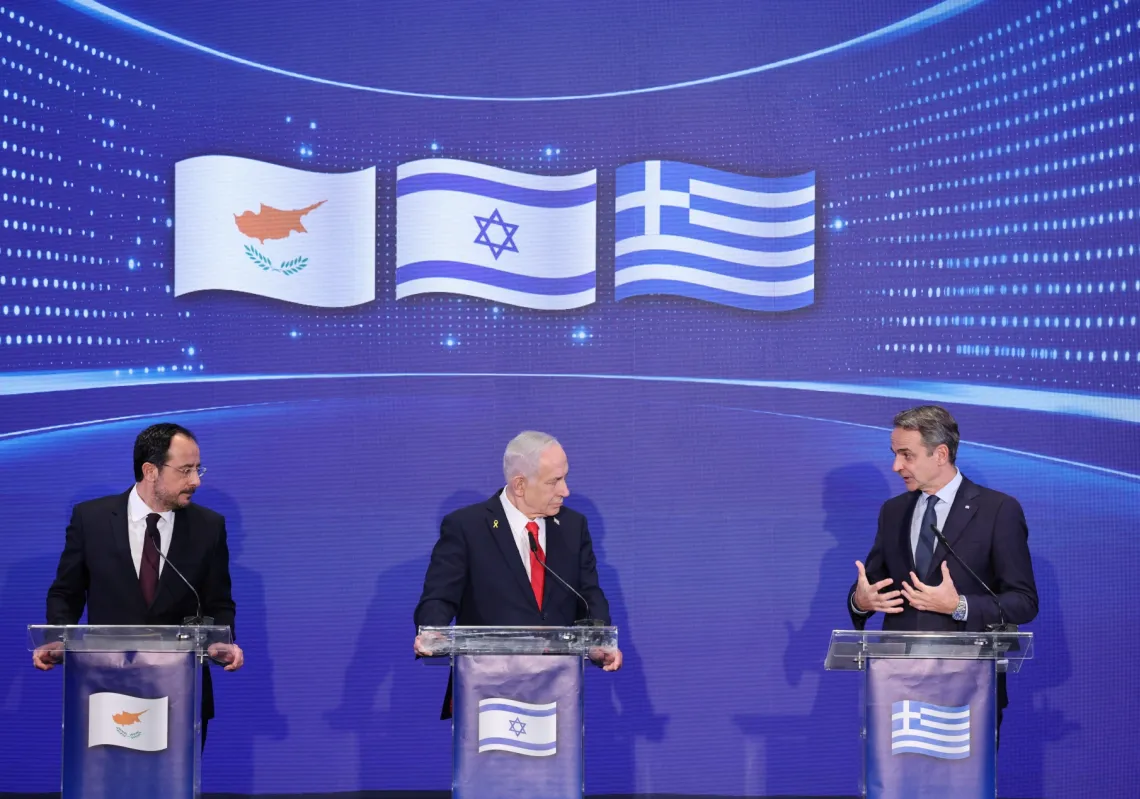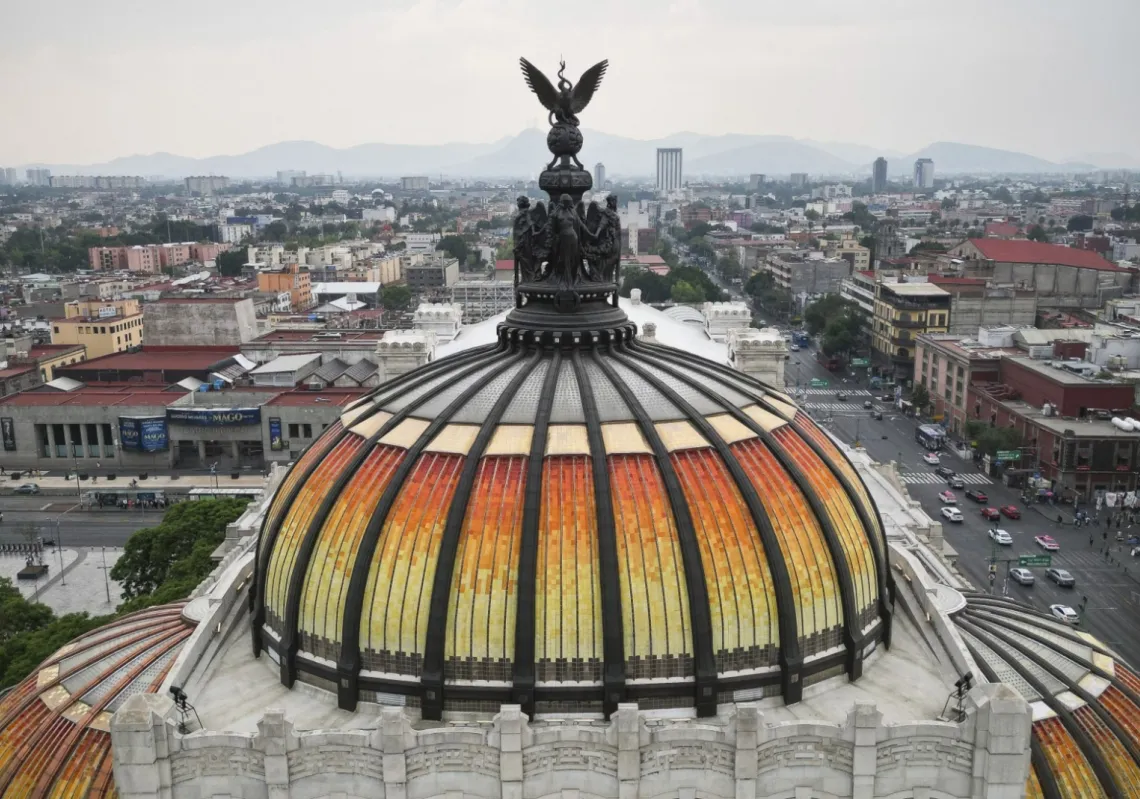EU Arab relations are again in the limelight, as is the case each time a Southern European country takes on the rotating the presidency of the European Union (EU). This first half of 2010, it is the Spanish who want to bring the new Euro-Mediterranean Union a few steps forward. The Union was created in 2008 under initiative of French president Nicolas Sarkozy to revive a moribund “Euromed” process, which involved the creation of a free trade area between the EU and the countries of the Mediterranean rim. The 2010 deadline for this free trade area has not been fully met. Trade talks with the Gulf countries, also launched in the 1990s, have petered out. There are no signs that an EU GCC free trade agreement will see light anytime soon.
What makes it so difficult to negotiate greater integration between the economies of the Mediterranean rim and the Persian Gulf, (henceforth MENA - Middle East and North Africa, excluding Israel and Turkey from the analysis), and the EU?
The first difficulty stems from the structure of existing trade relations: most MENA exports are energy exports. Hydrocarbons enter the EU duty and quota free. Therefore, MENA governments do not feel pressed to improve access to Europe. Furthermore, most countries around the Mediterranean already benefit from preferential access to the EU market. The high-tariff North African region’s markets are no major export destination for Europe, given their generally low income levels. Europe is looking towards Asia. While the wealthier economies in the Gulf are somewhat more lucrative export markets, most Gulf states are quasi free-ports in practice: applied tariffs are very low. The EU would like to invest more in manufacturing and services. But the EU’s mandate so far has not allowed Brussels to negotiate FDI on behalf of the member states. In services, such as telecommunications, energy, banking, business services etc, the EU would like to have better market access. But here it tends to face a wall of refusal in most Middle Eastern economies. Given that the EU itself remains rather protective in these same sectors, Brussels negotiators are not necessarily able to offer an interesting quid pro quo.
A second major reason for difficult trade talks is the EU’s import regime in agriculture. The purported Euro-Mediterranean “free trade area” carves out larges swathes of fruit, vegetables and processed foods that would be of great interest to MENA producers. At the best, some quotas allow Europeans to see some North African produce in their supermarket shelves. The irony is that the same EU member states who want to improve relations with Euromed countries, such as precisely Spain, or France, are those who compete most, head-on, with other Mediterranean producers of fruit and vegetables, olive oil, or grain. They will not open their markets without fierce resistance. A similar situation prevails in the EU’s fisheries sector, which is over-protected and heavily subsidized. Complying with the EU’s stringent and costly sanitary and phytosanitary requirements – the EU does not accept any other standard than its own, even in a free trade area - is very trade-deterring.
The third area of friction is the fact that EU trade agreements bring with them an arsenal of EU regulations, such as competition, government procurement, or increasingly stringent demands in intellectual property rights. These regulations are complex and often costly to implement. The EU also exports – with not much success - the idea of regional integration, regardless whether this fits local conditions or not. Furthermore, the EU makes demands to comply with political, social, labour and environmental standards that some MENA governments do not find palatable. In the labour and environmental sphere, many economists would find these ill-adapted to local levels of development.
It goes without saying that deeper economic links between the EU and MENA would be of great benefit to both. Opening EU agricultural markets could bring greater variety and better prices for EU consumers as well as unheard-of opportunities for MENA farmers. Both sides would benefit substantially if services trade and investment were liberalized. Northern Africa could benefit much more than it is now from opportunities to expand into call centres or light manufacturing, given its geographic proximity with the EU. In an ideal world, more labour migration opportunities – these are not an area of negotiation in trade agreements, however – would improve prospects of MENA’s numerous young population, and help the EU pay its gaping pensions deficit. Yet we are unfortunately not in an ideal world.
So what can MENA countries do to benefit most from links with the EU without having to wait for the outcome of burdensome negotiations? A simple answer would be: “just do it”. Many MENA countries remain very closed to the world economy. Algeria, Lybia or Syria need to join the World Trade Organization to begin with. Tariffs in many North African economies remain high by international standards. Tunisia has opened its markets substantially to the EU and benefited greatly from trade links with the bloc. Lowering or eliminating tariffs is one of the first steps to take if a country wants to attract investment: this lowers the price of inputs for production, and obliges companies to compete on global markets. But the great gap between Tunisia’s applied tariffs for EU and non-EU imports distorts its economic structure and renders its economy excessively dependent on the EU. In a world in which emerging markets in Asia, Latin America and next door in the Middle East play a greater role, having an open, non discriminatory trade and investment regime is the most sensible policy to adopt. By going it independently of trade negotiations, MENA countries could do this on their own terms and not heed EU conditions. Geographic proximity with the EU will remain a positive factor to attract investments. And once a country starts raising its income, the EU might well be ready to negotiate more comprehensive free trade deals with better terms for agriculture and services, as it has started to do in its last free trade agreements with the Caribbean and South Korea.
An open trade regime would revive a grand Arab tradition of international commerce. This has started already in the Gulf, with spectacular results, and would certainly deserve to be spread more widely. Why wait for Europe?
Iana Dreyer - Trade Policy Analyst, European Centre for International Political Economy








